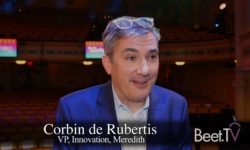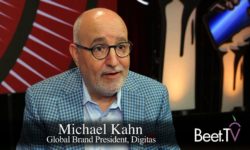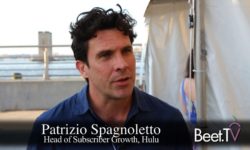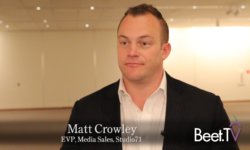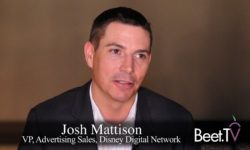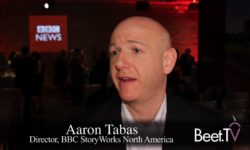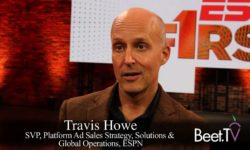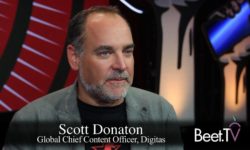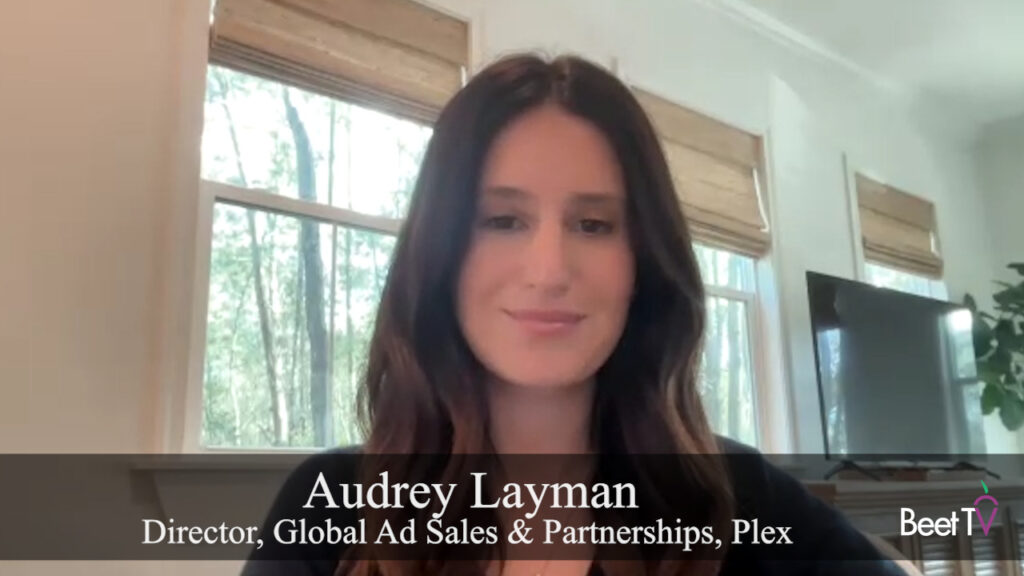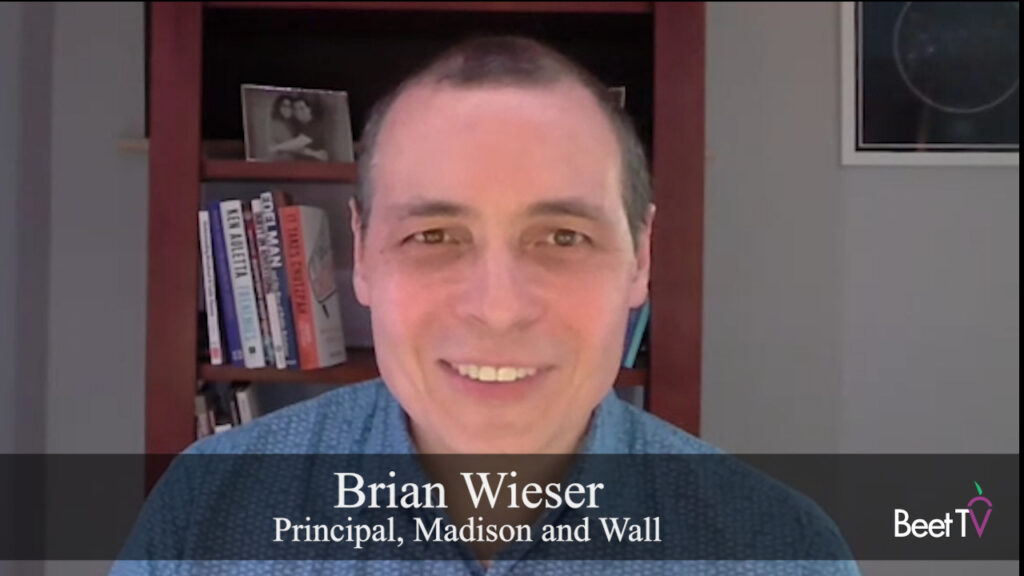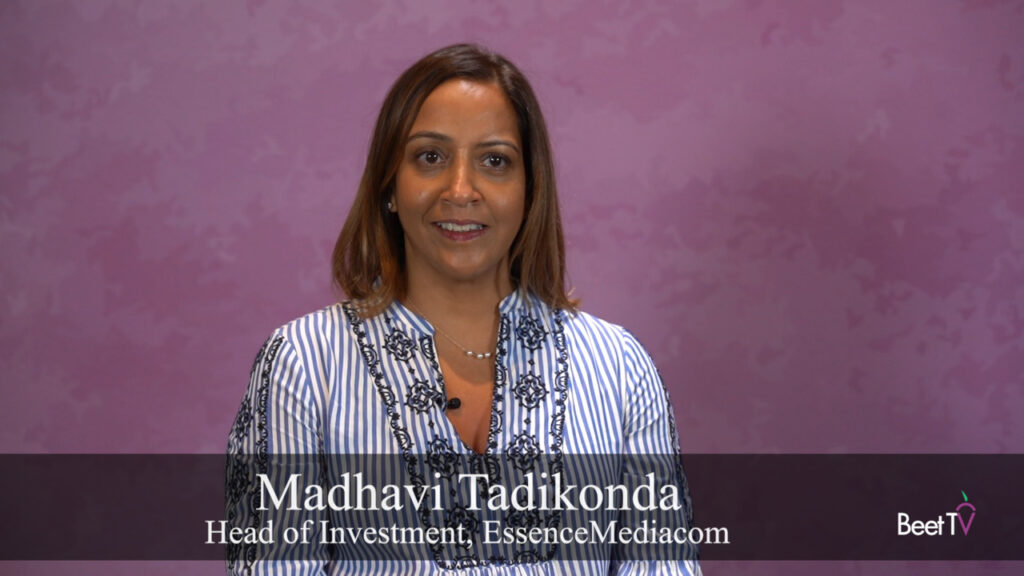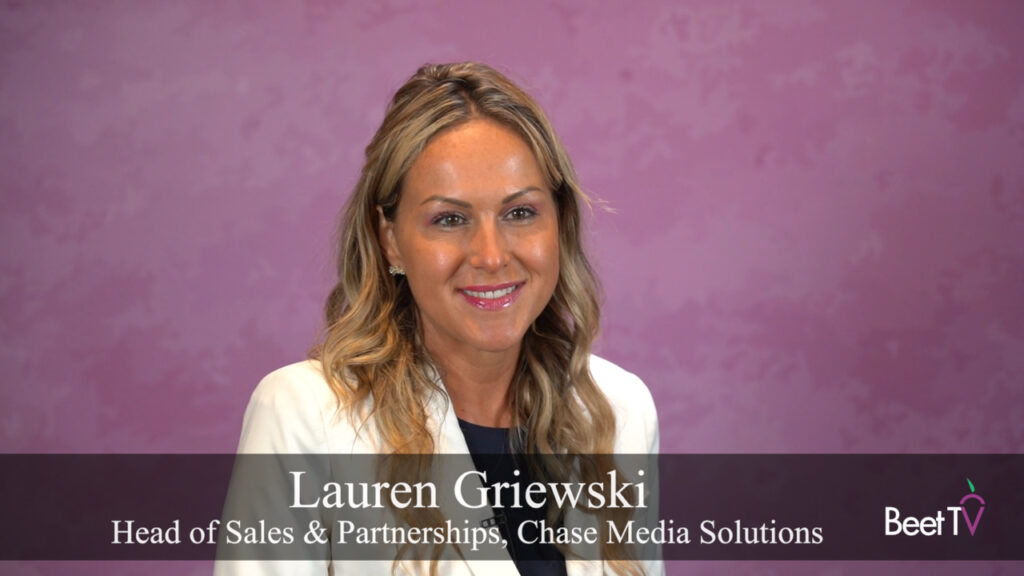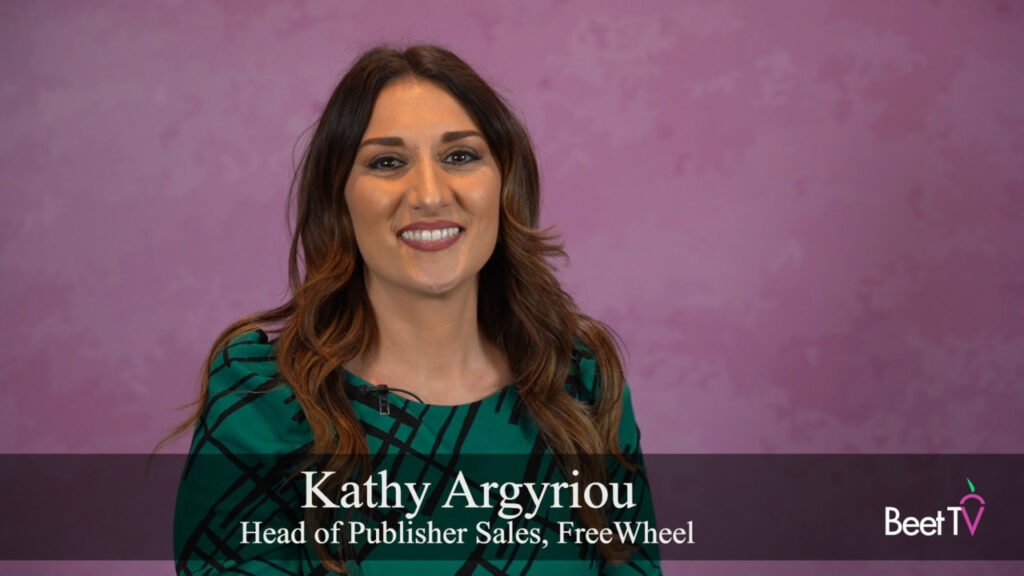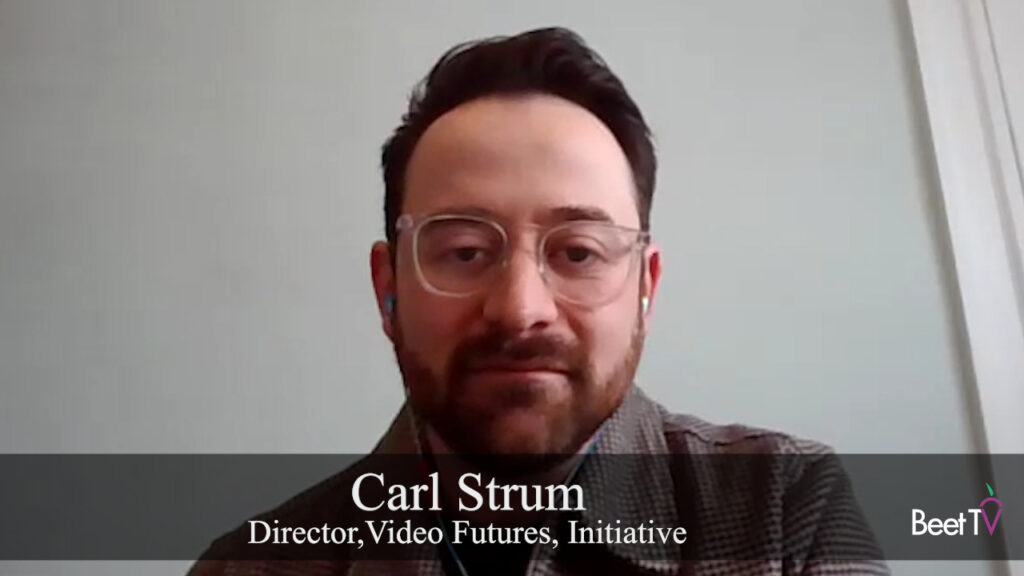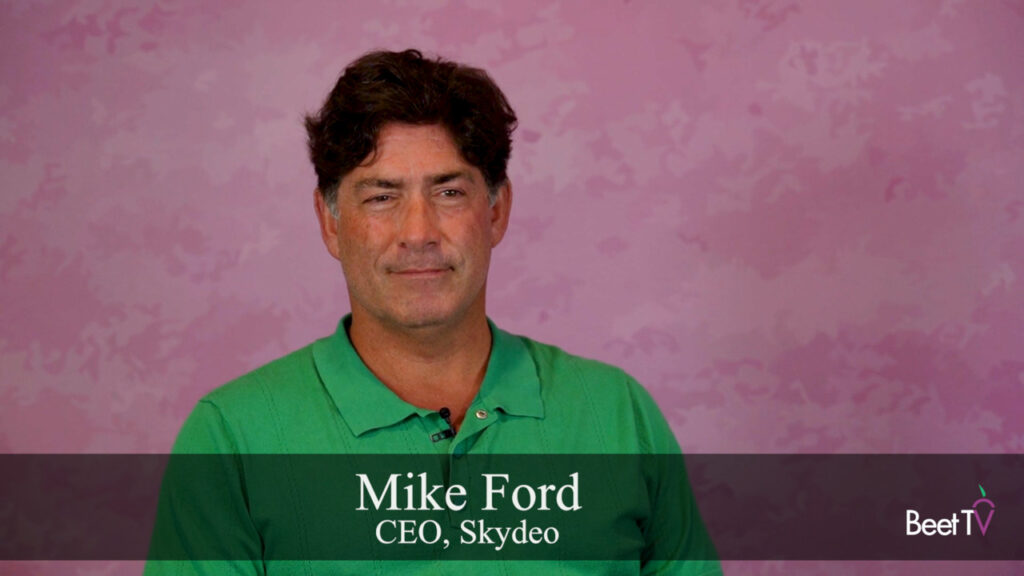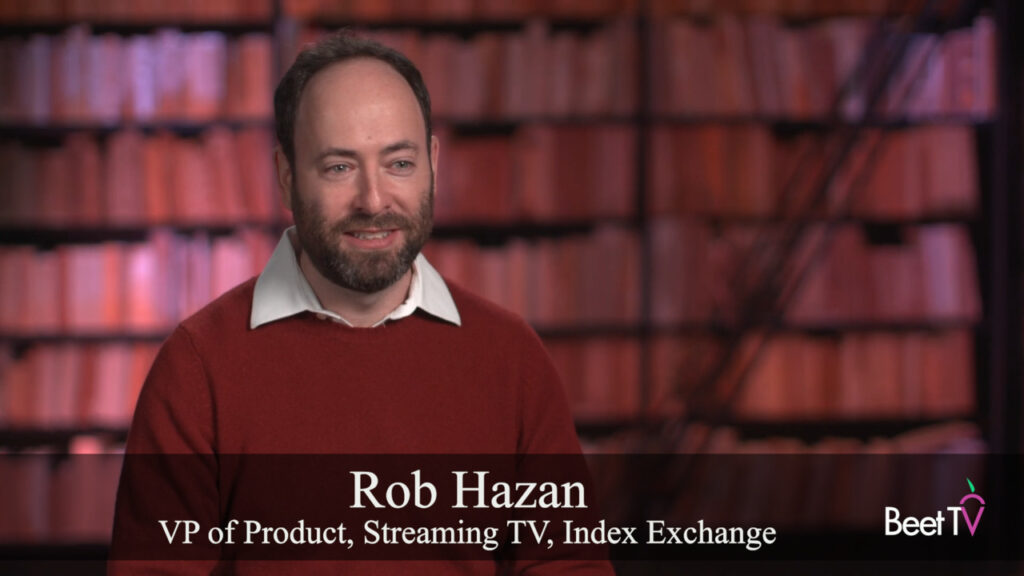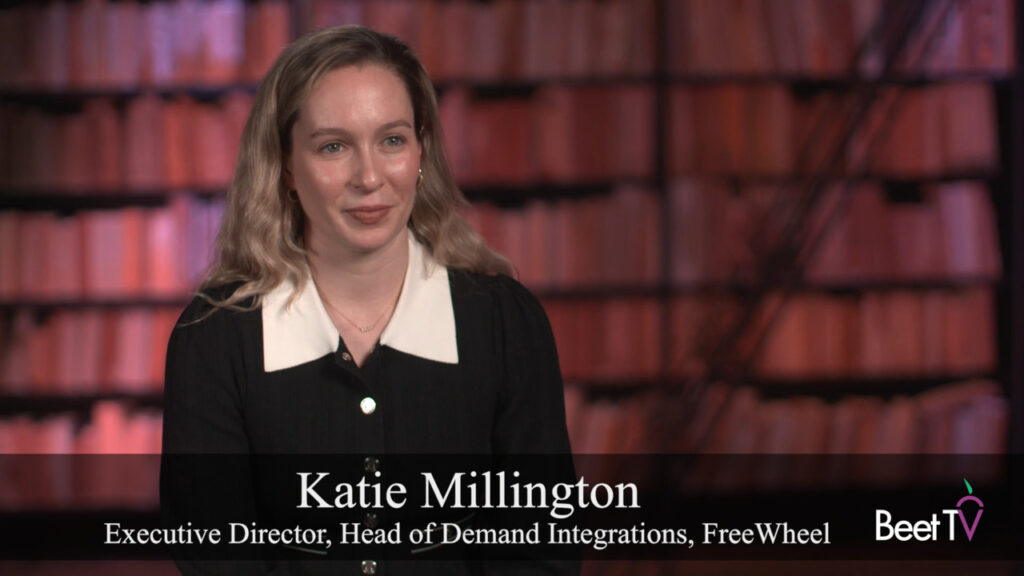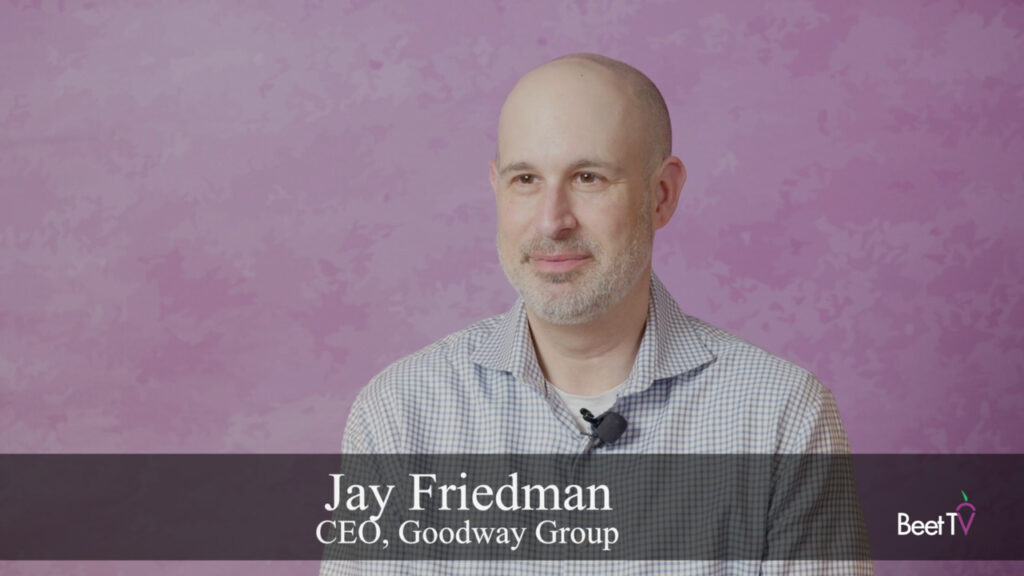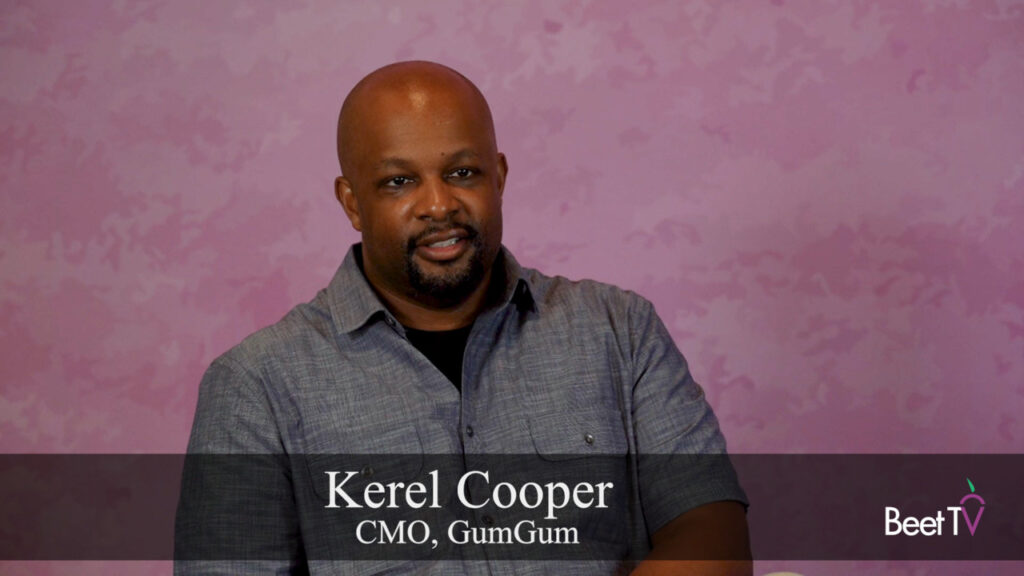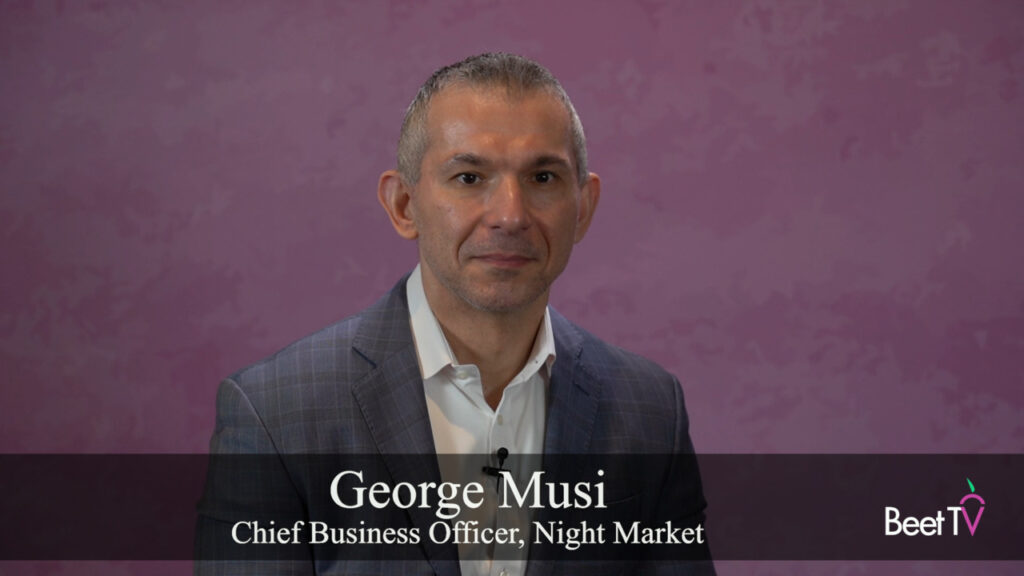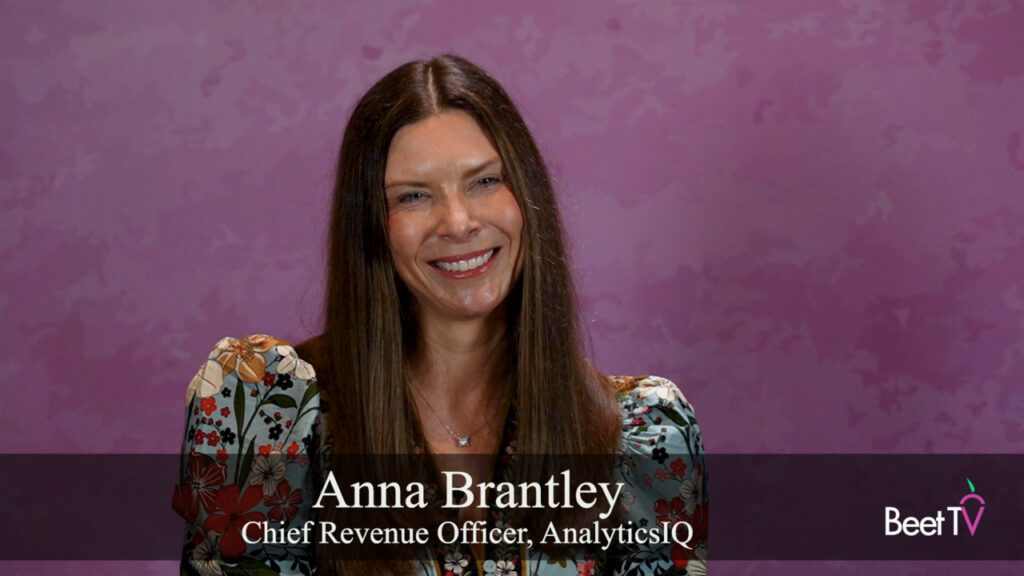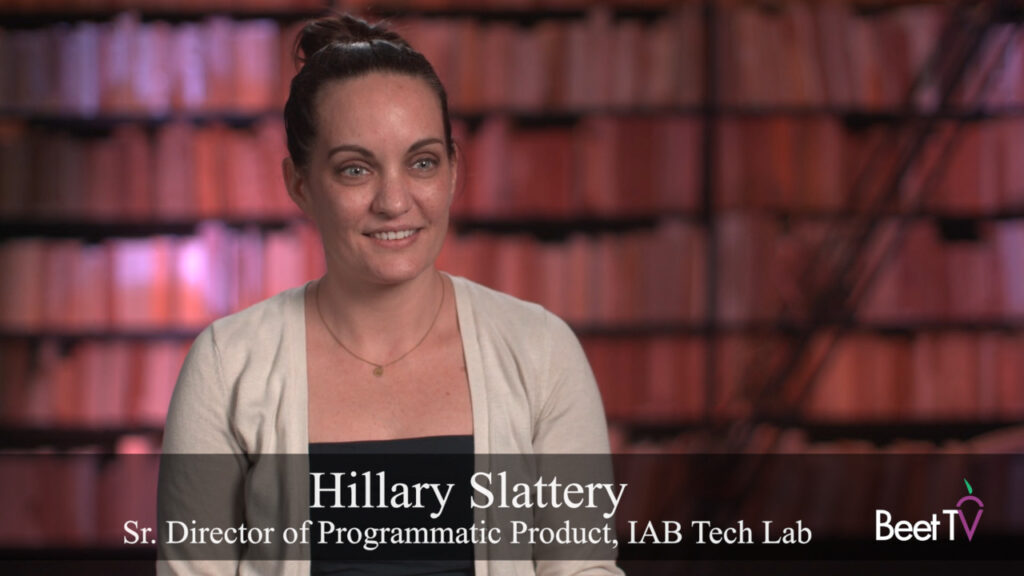YouTube certainly has reach, but its content doesn’t always lend itself to precise brand alignment. That’s where smaller digital players like Studio71 can differentiate themselves, according to MediaCom’s Renee Badigian.
In this interview with Beet.TV at the Digital Content NewFronts 2018, Badigian, who is Account Lead at the GroupM media agency, talks about why consumers are more sensitive than ever to brand alignment with content and the utility of downloadable video content from Hulu. And she predicts a heyday for audio.
“I think Studio71 actually had a really interesting approach” consisting of computer-driven text and image screening plus a third variable that’s not always found, says Badigian. “They actually have a human element, which I thought was really interesting because not all publishers or content creators are doing that. And it allows them to really understand what’s the difference between maybe a child holding a water gun versus an actual weapon.”
While she doesn’t think there’s a “solve” yet for the overarching issue of brand safety in digital environments, “It’s a very sensitive area and I think it’s one that we’re going to have to be more careful about as advertisers and people as consumers are going to be looking for.”
Asked about tactics for brand alignment, Badigian says a client might be getting “great reach” out of YouTube but not all of the content the client is aligning with on the platform might not be relevant enough to the actual brand or product. “I think that’s where a lot of these smaller publishers or content creators are really important for us because their content might be more customizable to our brand,” she says.
“Studio71 has a lot of different content integration opportunities where you can more tightly weave your brand into that platform. They really do have a ton of very loyal followers.”
In this interview, Studio71 Media Sales EVP Matt Crowley explains the company’s vetting process.
Badigian says Hulu’s NewFronts announcement about viewers being able to download content, including programming containing ads, is a nod to the reality that people don’t always consume video in the same way.
“Sometimes we’re in our homes, sometimes we’re in a train, sometimes we’re in a plane. So downloadable content’s important because we’re not always online even though we probably always want to be online.”
More details can be found in this interview with Hulu’s Peter Naylor.
Badigian was surprised she didn’t hear much about audio content at the NewFronts, given the ascendance of podcasts and similar formats. “I think video had its heyday. I think audio is about to have one.”
This video is part of Beet.TV’s coverage of the Digital Content NewFronts 2018. The series a co-presentation of Beet.TV and the IAB. Please see additional videos from the series on this page.










